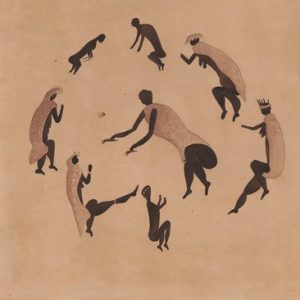by Mansell G. Upham ©
In an article (“Between Amsterdam and Batavia – Cape Society and the Calvinistic Church under the Dutch East India Company”, Kronos 1999), the Dutch academic Gerrit J. Schutte takes to task a “demagogic” Robert Shell of Children of Bondage– fame for demonising Calvinism as the driving force in segregating Cape (and ultimately South African) society.
In what some people might consider to be an exercise in apologism and not forgetting:
(1) a very apparent in-one’s-face rapprochement between Afrikanderdom and the so-called Stamlande (read Netherlands, Belgium, maybe Germany perhaps Britain but NOT India or `Indonesia and quite forgetting Indigenous ‘Hottentotdom’ …, eg Karel Schoeman’s latest scriblings (in Afrikaans) on the ‘Dutch Golden Age’ and greater Dutch / Flemish artistic journeys of discovery to Africa and participation at Stellenbosch and Oudshoorn);
(2) Dutch attempts to erase colonial guilt by exaggerating Dutch participation and instrumentalism in ‘liberating’ South Africans (their former colonial by-products or rejects) from ‘apartheid’; and
(3) the glowing Calvinistic legacy as propounded (naively?) by W.A. De Klerk in his The Puritans of Africa;
(4) ‘Afrikaner’ soul-searching and liberal disavowal by people as varied as Dr Neels Smit, Christina Landman, Elisabeth Eybers, André du Toit and Allister Sparks …
can we blame Gerrit Schutte for wanting to absolve Dutch ‘christian practice’ in creating a segregated society at Africa’s remotest corner?
Certainly, blaming Calvinism (defined as what?), is an over-simplistic cop-out that damns only a minority-within-a-minority and grants automatic amnesty to the many colonised (not-necessarily ‘white’) minds of the ‘African’ majority.
Schutte’s arguments, I would opine, are convincing vis-à-vis Shell’s “unhistorical” views and interpretation of early Cape colonial society. But he does not go beyond demolition. He does not posit (never mind prove) any real reasons why, for example, until 1825 the church council at Stellenbosch was content to treat its technicoloured parishioners as being ‘equal’ before God. Thereafter a volte-face ensued whereby the church bowed to “growing social segregation” (what does this mean?) thereby separating “coloured church members” in terms of Holy communion.
Why?
What caused this about-turn? We are still living with its consequences … even genealogical.
The separation of church registers and the prior selective retrieval of data from these records has left us in the dark as to a fuller picture also to the whereabouts, existence, behaviour, failings, right to baptism etc of some of our ancestors.
Anyone care to debate a little on this important issue?
